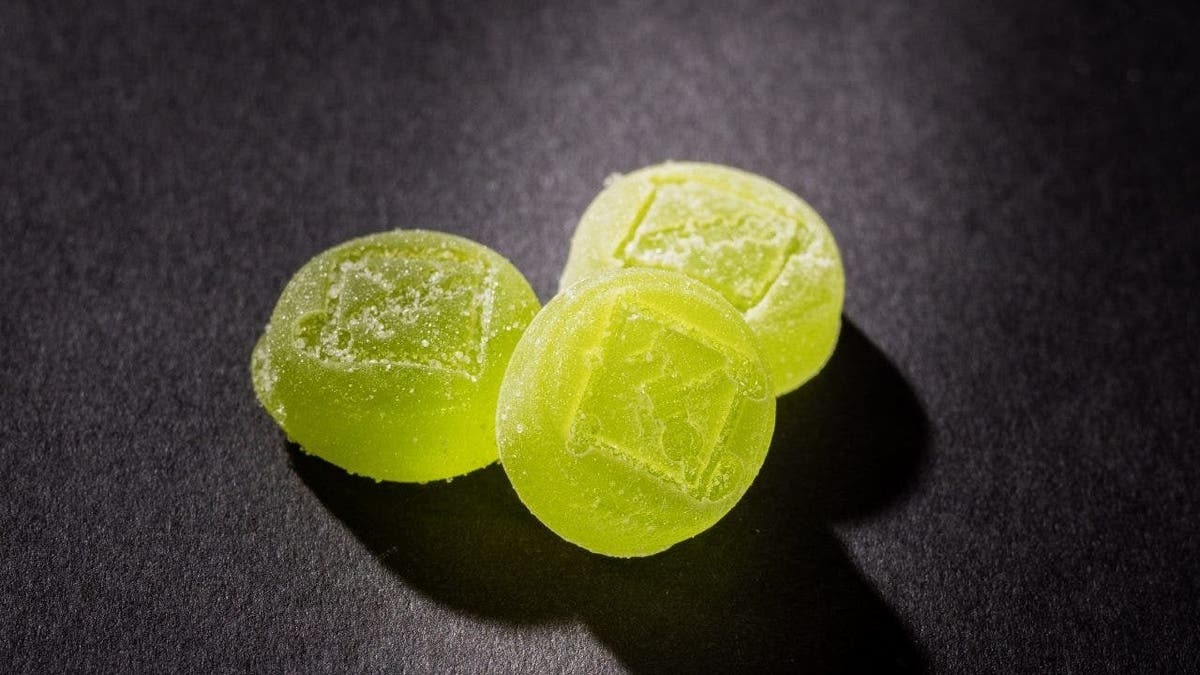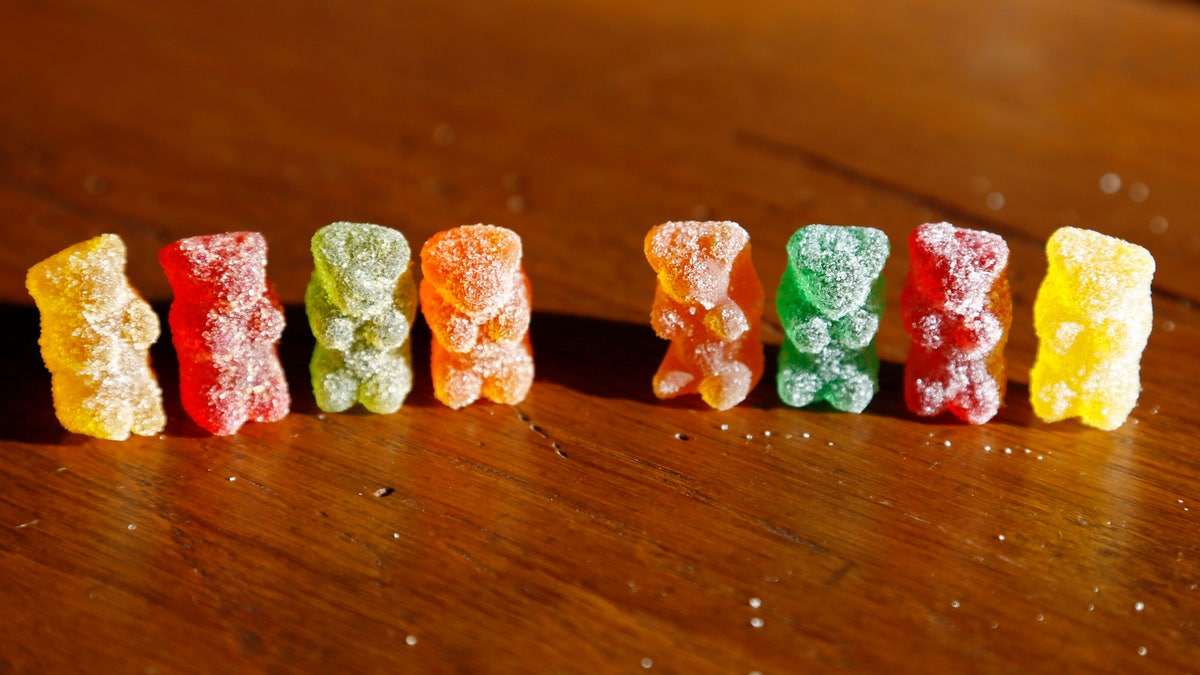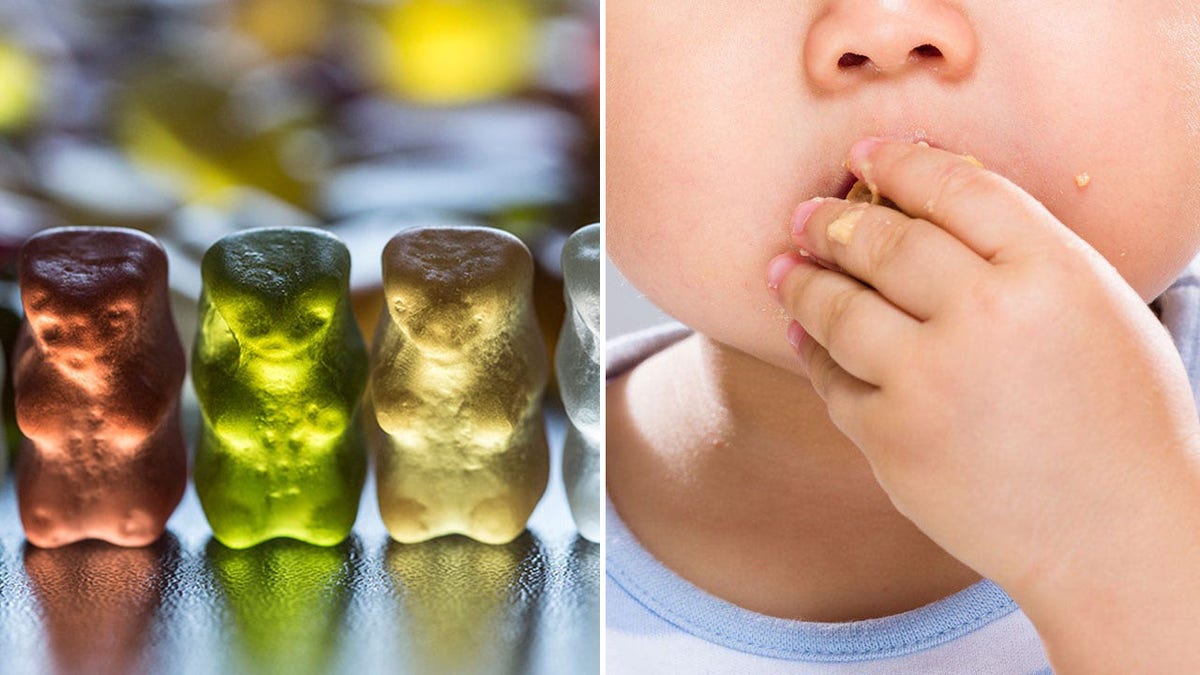NEWYou can now listen to Fox News articles!
Cannabis gummies have grown in popularity in recent years, as more people turn to them to relieve pain, inflammation, anxiety and sleep issues, among other uses.
There is also a growing concern, however, about the THC-containing gummies getting into children’s hands — and mouths.
Reports of cannabis poisoning among children soared from 930 in 2009 to more than 22,000 in 2024 — and last year, more than 75% of all cannabis poisonings involved minors, according to America’s Poison Centers.
HERE’S WHAT MARIJUANA REALLY DOES TO THE DEVELOPING BRAIN, ACCORDING TO A PSYCHIATRIST
Melissa Johnson, a licensed clinical social worker and the senior clinical director at Victory Starts Now in Los Angeles, said she is not surprised by the uptick in gummy cannabis poisonings among children.
“Companies are advertising gummy cannabis the same way they would sell candy to children,” she told Fox News Digital.
Dr. Darria Long, M.D., an emergency physician in Atlanta, Georgia, and a member of the BabyCenter Medical Advisory Board, confirmed that she’s aware of multiple children per week seeking medical attention for this issue.
“Gummies are particularly dangerous because kids don’t just eat one — they can eat an entire bag,” she told Fox News Digital. “So they’re ingesting somewhere around 10 adult servings in the body of a 30-pound child.”
“Gummies are particularly dangerous because kids don’t just eat one — they can eat an entire bag.”
Long said she has seen instances where someone bought cannabis gummies and unintentionally gave them to a child, not realizing they contained THC.
“Some parents think, ‘but it’s natural, it can’t be dangerous,’ or ‘it’s just a little pot, it can’t be dangerous.’”
Symptoms and treatment
A child who has consumed cannabis gummies could come in lethargic or not breathing, and may have experienced seizures, Long told Fox News Digital.
In many cases, the child’s heart rate drops, and they may even go into cardiac arrest and require CPR.
Treatment for gummy overdoses depends on how severe the situation is, according to Long.

“Sometimes children need to be intubated and put on a respiratory machine, and sometimes they need electrical pacing of their heart because their heart rate is too slow,” she said.
They may also need IV medication, including epinephrine to keep them from going into cardiac arrest or other drugs to stop seizure activity.
CANNABIS USE RAISES RISK OF HEART ATTACK AND STROKE MORE THAN COCAINE, OTHER DRUGS, MAJOR REVIEW SUGGESTS
In severe cases, cannabis gummy poisoning can cause coma, death or long-term side effects, including problems with memory, attention and problem-solving skills, experts agree.
“Especially if they have periods during which their brain is not getting enough oxygen, they could have hypoxic brain injury, among other potential complications,” Long warned.

Dr. Margret Chang, a pediatrician at UMass Memorial Health’s Tri-River Family Health Center in Uxbridge, Massachusetts, said it would be “highly unlikely” for these severe effects to develop in a child after just one exposure, as long as they get appropriate medical monitoring and care.
“However, if a child were to come in contact with a cannabis gummy from an illicit source that just happened to contain fentanyl or cocaine, the consequences of consuming that gummy would be far more deadly, and the long-term effects far more powerful,” she told Fox News Digital.
MORE SENIORS ARE USING CANNABIS THAN EVER BEFORE DESPITE HEALTH RISKS, RESEARCH SHOWS
THC can stay in a child’s system much longer than an adult’s, experts agree.
“It depends on what they have taken and how large a quantity was ingested, but I’m aware of cases where children took 24 to 36 hours or more just to become stable,” Long said.

Parents should watch out for symptoms such as sedation, difficulty breathing and confusion, Johnson advised.
“Parents should make sure to educate themselves on signs that their child may have ingested THC, so care can be administered as soon as possible,” she said. “If you think your child has ingested THC, get them to the nearest hospital or call 911 for immediate care.”
Prevention of cannabis poisoning
To keep children safe from toxic ingestion, experts agree that it’s best not to keep THC-containing products in the home.
“If you do keep these in the home, they need to be treated the exact same way you would treat all prescription medications, which could be life-threatening if a child ingests them,” Long said.
“I think we need to know more about where the product is coming from and why it wasn’t kept away from a child.”
“That would include using a baby-proof or child-proof container, and keeping them out of reach and out of sight.”
She added, “If parents do use these types of products, they should avoid having them in forms that are at all tempting to children, like gummies, candy, brownies or cookies.”

People should only use sources of cannabis gummies that come from registered dispensaries, Chang added.
“Failure to do so can lead to the acquisition of cannabis supplies that are contaminated with illicit substances such as fentanyl, cocaine and benzodiazepenes, which are added to products to make them more appealing to consumers.”
Industry source reacts
Riana Durrett, director of the Cannabis Policy Institute at the University of Nevada, Las Vegas, said that while it’s “chilling” to hear stories about children seeking medical attention for cannabis gummy poisoning, “it doesn’t seem like the whole story.”
CLICK HERE TO SIGN UP FOR OUR HEALTH NEWSLETTER
“Data is showing that youth use is going down in states where cannabis legalization is occurring cannabis legalization is occurring — so in order to properly react and address increases in accidental consumption, I think we need to know more about where the product is coming from and why it wasn’t kept away from a child,” she told Fox News Digital.

“For example, if it is a product from an unlicensed source (which is likely if it is marked ‘kid-friendly’), then turning our attention to the licensed cannabis industry fails to address the actual problem and would fail to increase protections for children.”
For more Health articles, visit www.foxnews.com/health
According to Durrett, connecting these incidents of child poisonings with cannabis legalization seems like an “insufficient explanation.”
“I think more details about the source of the products and how the child accessed the product would be helpful in identifying more effective responses or policy changes,” she added.
Read the full article here







Leave a Reply